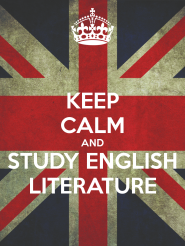For my first ever post on this literary blog I thought it would be appropriate to start off with a bit of a history lesson. I want to travel back a couple of centuries and find out how literature as we know it today developed and became a widespread field of study in the academic world. To do this, I will use the chapter titled “The Rise of English” from Terry Eagleton’s book, Literary Theory, as a guide. 
Many a seasoned literature buff will cry out and say that Eagleton was a Marxist and so his theories about literature come from a Marxist point of view. This, of course, is undeniable as Eagleton over and over again uses Marxist language such as ‘fetishize’ and ‘bourgeois’ to the extent that one could mistake the chapter for an essay written by the founder of Communism himself. This however, does not mean that Eagleton’s writing is tainted so much that any analysis he offers is null and void, and in my reading I’ve found that quite the opposite is true. There is some very valuable knowledge and perspective to be gained from the Marxist perspective.
Eagleton starts off by declaring that literature as we know it today began to develop during the Romantic period’ of English writing. He writes that by the time Romanticism rolled around, “literature was becoming virtually synonymous with the ‘imaginative’: to write about what did not exist was somehow more soul-stirring and valuable than to pen an account of Birmingham or the circulation of the blood,” (Eagleton). But how did this contribute to the rise of the study of literature? Due to its strong connection to the imaginative, its human element, and its dealing with universal values, suggests Eagleton, it was the ideal candidate to replace the most powerful form of sway over the masses: religion. By the middle of the Victorian period, he tells us, religion had fallen out of favor with the lower classes and a substitute was needed, the ruling class felt, to keep them in line. The study of literature was perfect for the job because, “…it could serve to place in cosmic perspective the petty demands of working people for decent living conditions or greater control over their own lives, and might even with some luck come to render them oblivious of such issues in their high-minded contemplation of eternal truths and beauties,” (Eagleton).
From there it was just a matter of time until this common man’s pursuit rose into the world of academia. After its humble start as a ‘poor man’s classics’, a sort of education for those not privileged enough to attend institutions like Oxford or Cambridge, it soon found its way into institutions of higher education at roughly the same time English women did. Eagleton explains that, “…since English was an untaxing sort of affair, concerned with the finer feelings rather than with the more virile topics of bona fide academic ‘disciplines’, it seemed a convenient sort of non-subject to palm off on the ladies, who were in any case excluded from science and the professions,” (Eagleton). This being the situation, it took a while for the study of literature to find its way up the ladder to the higher classes of academia and society itself.
To be continued…
- Eagleton, Terry. “The Rise of English.” Literary Theory: An Introduction. Minneapolis: U of Minnesota, 1983. 17-53. Print.
